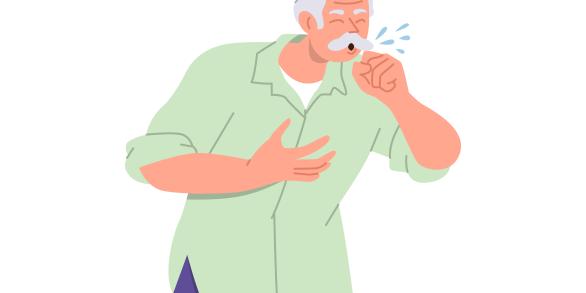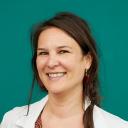We're hiring ! Join us and make a difference in our hospitals
Center of COPD (Chronic Obstructive Pulmonary Disease)
What is COPD?
Chronic Obstructive Pulmonary Disease (COPD) is a common and potentially fatal respiratory disease that in most cases is linked to smoking.

It is characterised by a permanent and progressive obstruction of the airways that is the result of the combination of two mechanisms, present to varying degrees depending on the patient:
-
Chronic bronchitis: the airways become increasingly narrow due to chronic inflammation
-
Emphysema: the pulmonary alveoli (that part of the lung that enables oxygen to enter the blood) are destroyed progressively .
The establishing of an obstructive breathing disorder by spirometry (breathing test) permits a COPD diagnosis.
What are the causes of COPD?
Smoking is the most frequent cause of COPD in developed countries. One in five smokers and a half of all those who smoke at the age of 65 suffer from COPD. Nevertheless, other factors (environmental, immune and/or genetic) can play a role and render certain subjects more susceptible to developing COPD. The best known, albeit rare, genetic cause is alpha-1-antitrypsin deficiency.
When to be screened? What are the symptoms?
This disease often starts with a cough and bringing up phlegm in the morning. These symptoms are often ignored by the smoker who regards them as “normal” consequences of smoking. Progressively, the sufferer experiences shortness of breath on exertion that can pose a problem in everyday life, causing the patient to move around less and less. This in turn results in a loss of physical fitness that aggravates the shortness of breath.
Early screening for COPD (breathing capacity test) should be carried out for smokers with COPD-like symptoms, such as coughing, persistent bringing up of phlegm and/or shortness of breath and indeed for all smokers aged over 40.
COPD care at the Erasmus Hospital
Once a diagnosis has been established, the Erasmus Hospital proposes a number of supplementary checks:
-
A thoracic scan to screen for emphysema and suspicious shadows (lung cancer is more common among COPD patients)
-
A heart ultrasound to rule out the presence of a cardiac effect of the lung disease and/or an associated heart disease
-
An exercise assessment (bicycle ergospirometry and/or walking test) to assess capacity during exercise
-
A blood test to evaluate the degree of inflammation in the blood and to screen for a potential genetic cause (alpha-1-antitrypsin insufficiency)
An early and comprehensive blood test is necessary in order to:
-
Prevent the COPD from progressing
-
Relieve symptoms
-
Improve lung capacity during exercise and quality of life
-
Prevent and treat exacerbations (episodes of aggravated respiratory problems, primarily due to infections)
-
Reduce mortality
First-line treatment includes:
-
Stopping smoking. This is the best way of preventing the disease from developing further. A smokers’ assistance centre (CAF) is available at the Erasmus Hospital
-
Flu and pneumococcal vaccination, designed to avoid infections that are more often fatal among COPD patients
-
A pharmacological treatment consisting essentially of bronchodilators
-
Respiratory rehabilitation which consists of a set of care measures (bike/carpet retraining and muscular retraining; nutritional and psychosocial accompaniment; education) given by a multidisciplinary team (doctor, physiotherapist, occupational therapist and others)
-
The administration of oxygen in the long term for severe cases in whom COPD is resulting in respiratory insufficiency
Leading edge treatment
In patients with an advanced stage of COPD despite a maximum of care, second-line treatment is proposed at specialised centres such as the Erasmus Hospital:
-
Interventions to reduce lung volume (endoscopic or surgical) for patients with severe emphysema:
-
The placing of endobronchial valves that are positioned in the most damaged bronchi to prevent the air from entering there, consequently enabling the less damaged zones to benefit from more air
-
Surgery to reduce lung volume that, according to the same principle, removes the least efficient and most diseased zones of the lung to enable the rest of the lung to function better
A lung transplant can be envisaged for patients at a terminal stage of COPD aged no more than 65 and with no other major associated illnesses (comorbidities).
Our specialists


